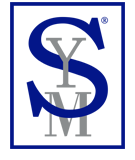ARTICLE 3-b It is obligatory to connect each waste water source to the sewerage network in places where there is a sewerage network. Wastewater can not be evacuated.
C- Sewerage networks can not be destroyed and their usage purposes can not be changed.
D- It is obliged to cover all expenditures for the elimination of damages caused by discharge of any kind of wastewater source, sewage network and treatment facilities and discharge of wastewater from the sewerage network and receiving center.
E For the connection of an industrial wastewater to the sewer network, it must be transported by a conveyor or similar means;
1- To prevent or hinder the construction and operation of the sewer network,
2- Not to create health hazards for employees and surrounding people,
3- It is not possible to affect the operation and efficiency of the treatment plant where the wastewater is given in the negative direction,
4- The wastes (sludge etc.) formed in the treatment plant should not be treated, removed and used and it should not cause them to become polluted.
ARTICLE 5-
No unauthorized official or private person or organization can touch the sewerage system, the covers of the channel networks can not be opened, the places can not be excavated, the locations of the networks can not be changed, the connection channels can not be constructed and they can not be connected to the network system. Water can not be taken from sewage plants for any purpose.
ARTICLE 6-
If there is a separate sewerage system in the region; Rainwater and all other non-polluting superficial drainage waters can not be connected to domestic waste water channels.
